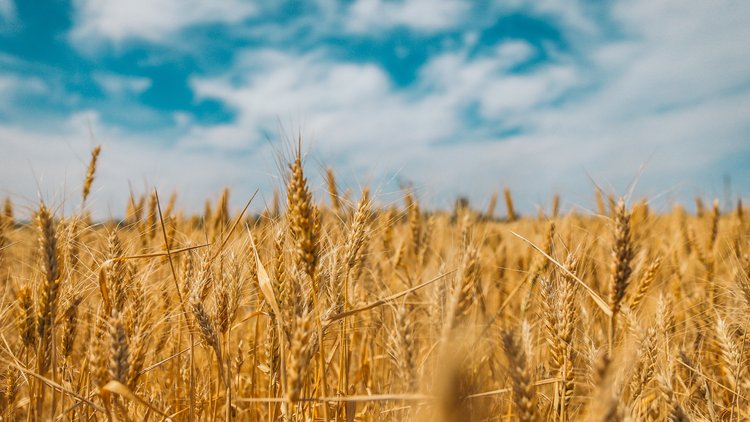An international group of panelists comprised of chefs, academics, and thinkers, discussed the global food and agriculture consequences of the War in Ukraine, Friday. Moderated by Fabio Parasecoli, professor of Food Studies at NYU, discussions touched on how agribusiness, small-scale farmers, global supply chains, and restaurants worldwide have felt war-related strains on food production, trade, and more.
Panelists included Pierre Thiam, chef, author, social activist, and founder of Yolélé & Teranga, two U.S.-based west African food companies; Brian Kuns, an associate senior lecturer in the Urban and Rural Development Department at the Swedish University of Agricultural Sciences; Olesia Lew, a Ukrainian chef at Veselka, an iconic Ukrainian NYC restaurant; Diana Mincyte, associate professor of sociology at CUNY-City Tech; and Michael Puma, director for the Center for Climate Systems Research affiliated with Columbia University.
In a conversation about how the war has affected agribusiness, Kuns noted the following vulnerabilities:
• Global fertilizer strains
• Long-term agribusiness budget strains
• Small-scale businesses in Ukraine
• General Ukrainian food production
• Ukrainian exports
• Ukrainian and global fuel access
Ukrainian export has been dramatically affected by blockades at Ukrainian ports, which is the country's primary mode of product transportation. This has also strained its rail system, which used to account for only a small percentage of export transport. Exports like wheat, sunflower oil, fertilizer, and more have dramatically reduced or otherwise stopped for the time being.
Lew and Thiam remarked on the immediate impact the removal of Ukrainian sunflower oil has had on their U.S.-distributed products. Lew noted that Veselka had a backup plan in place and is sourcing sunflower oil locally, and Thiam is seeking alternative solutions for chip products made with the oil.
Thiam acknowledged the call to action that this war has elicited in seeking diversification of food ingredient reliance.
This is “an opportunity to rethink our food system: Why are we relying on four crops when there are over 7,000 edible plants in the world?” he said.
Other speakers echoed the fragility in the global supply chain resulting from the war.
Fertilizer was considered a large global concern for Kuns, Mincyte, and Puma, who all noted the increase in fertilizer prices and the roughly 14 percent of fertilizer production taken out of the supply chain because of the war. Puma noted that the fertilizer issues are severe, and force farmers to face tradeoffs in crop production that will likely cause global ripple effects.
Mincyte offered insight into the perseverance and risk of small-scale farming businesses and alternative food systems in Ukraine. These small-holder agriculture practices are continuing despite the war, and “tend to be headed in the household by women…this is also the case across the world.” She said that these populations tend to have less money and are less likely to receive aid despite their crucial role in combating food insecurity, as women are more likely to care for children and the elderly. Moreover, Parasecoli added that most of the male workforce must fight in the war, so women are left to champion farming and food production.
Lew closed out the panel by providing a robust list of resources that people can donate to or volunteer for to help support those affected during this time: World Central Kitchen, Razom for Ukraine, Save the Children, and Caritas.
Related: War in Ukraine Causes Increased Food Prices, Impacts Farmers; Inflation Tapers, Food Prices Soar

